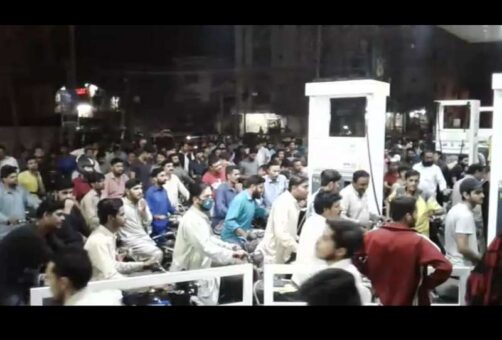Islamabad, January 30, 2025 – Pakistan is gearing up to announce new petroleum prices for the first half of February 2025 on January 31, amid declining international oil prices.
The fortnightly revision is highly anticipated by citizens, who are hopeful for a reduction in local fuel prices in response to global trends.
Over the past few weeks, international oil prices have witnessed a significant drop. The benchmark Brent crude oil price fell to $76.49 per barrel on January 28, 2025, down from $82.03 per barrel on January 15, 2025. This decline has fueled expectations that the government may pass on the benefit to consumers by lowering domestic fuel prices.
During the previous revision on January 15, 2025, the government increased petrol prices by Rs3.47 per litre and high-speed diesel (HSD) prices by Rs2.61 per litre, setting the new rates at Rs256.13 per litre for petrol and Rs260.95 per litre for HSD for the fortnight ending January 31, 2025.
According to a press release from the Finance Division, the Oil and Gas Regulatory Authority (OGRA) has finalized consumer petroleum prices based on international market fluctuations over the last two weeks. However, the announcement did not specify adjustments for kerosene and light diesel oil.
Industry insiders previously suggested that the ex-depot petrol price could increase by Rs5-6 per litre, depending on final calculations, while kerosene and diesel prices were expected to rise by approximately Rs3 and Rs2 per litre, respectively. These estimates were based on slight fluctuations in global HSD and petrol prices, along with minor changes in ex-refinery costs for kerosene. Meanwhile, import premiums on petrol and diesel remained steady, and the exchange rate showed stability.
Petrol is a crucial fuel for private transportation, small vehicles, rickshaws, and two-wheelers, making its price particularly impactful on the middle and lower-middle classes. HSD, widely used in heavy transport, trains, and agricultural machinery, plays a significant role in inflation, affecting costs in sectors like food and logistics.
The government currently imposes a tax burden of approximately Rs76 per litre on petrol and HSD. While general sales tax (GST) remains at zero on all petroleum products, a petroleum development levy of Rs60 per litre is applied to both petrol and HSD, significantly impacting consumer prices.
